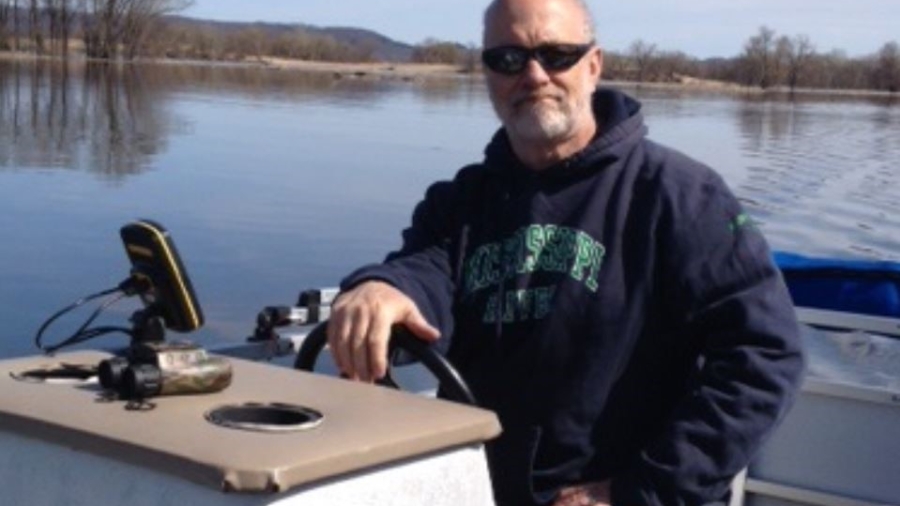The deadline for the FY 2024 Section 319(h) Nonpoint Source Pollution Notice of Funding Opportunities has been extended to May 15, 2024 at Noon. More information on the Illinois EPA website.
Interview With Dr. Ken Lubinski, USGS (Retired)
- What is the name of the organization you work for and your role there?
- I’m retired, but I worked for two scientific organizations—Illinois Natural History Survey (1973-1986), and U. S. Geological Survey (1987-2014).
- How did your experience at IWRC contribute to your career path?
- I began my Masters work at Western Illinois University in 1972. A researcher, Dr. Richard Sparks, at the Illinois Natural History Survey obtained a grant from the IWRC in Illinois (located on the Champaign-Urbana Campus of the Univ. of Illinois) to develop Bluegill Toxicity Indices for the Illinois River. The INHS Field Station in Havana, IL, located on the Illinois River, was close to Western Illinois University. The grant funded my Master’s thesis work between 1973 and 1975.
- In what ways did your work/experiences at IWRC contribute to your professional development?
- Only one person in my third generation of Polish-Americans ever went to college, and I was the first to go to graduate school. I didn’t know anything about science as a potential career path. I did not spend much physical time at the IWRC, but met regularly with the Center Director, Glen Stout, and learned how the research I was doing was related to water research being done state-wide. I presented progress reports to peers, and in the process learned how a scientific grant programs operated, funds were transferred, how request and report on the use of grant funds. Being associated with the IWRC office at the Univ. of Illinois also put me in communication with an extensive network of academic and state agency water scientists. These were my first exposures to how river science was done.
- Are there any valuable perspectives that you gained in the field?
- The perspectives I started developing included: what kinds of research decisions were made by scientists at various levels in a scientific organization, how difficult it was to propose and defend science projects, what peer review was for, how important publication was, and how scientists had to balance their communications among the science community, land managers, policy makers, and the general public.
- How has your time at IWRC influenced your career and personal growth?
- My time with the Illinois IWRC convinced me that a career in science, especially water and natural resources sciences, was what I wanted to do for the rest of my life.
- What are your future career aspirations, and how do you see your experience at IWRC playing a role in those aspirations?
- During my career, the fundamentals I learned during my Master’s work (while being funded by the Illinois IWRC), never lost any of their importance. I had great mentors to show me how to do “the right job” and “the job right”. I was fortunate enough to be recommended for a PhD program at Virginia Tech, and later returned to begin leading science projects within the Illinois Natural History Survey. I eventually led the science of a nationally recognized river monitoring program with field stations in 5 states. At the end of my career, I departed with great memories and the feeling of having made a difference. Now, retired, I’m happy to say that I’m still doing science voluntarily, to support Rillito River floodplain restoration. It all started with that small Master’s project, funded by the Illinois IWRC, on the Illinois River.
- What are some of your notable work/projects at IWRC?
- The Illinois River project was the only active project I’ve had with the IWRC network. I consider it notable, because it was one of the early research projects that got the Illinois EPA and City of Chicago on the right track to reduce the most important pollutants that were limiting fish health in the Upper Illinois River.
Upcoming Algal Bloom Action Team Webinar on April 3
This edition of the Algal Bloom Action Team will feature Ellen Preece, Senior Scientist for the California Department of Water Resources. Dr. Preece will share her research monitoring microcystin from 2020 to 2023, which spanned California’s driest consecutive 3-year period and one of the wettest years on record (2023).
Save the Date! The University of Illinois System and São Paulo Research Foundation Hosting FAPESP Week in Chicago, Register By 3/28/24
The University of Illinois System and São Paulo Research Foundation (FAPESP) have the pleasure of inviting you to attend FAPESP Week Illinois on the 9th and 10th of April 2024 at the University of Illinois Discovery Partners Institute.
The Illinois State Geological Survey Seeking to Hire an Associate Research Scientist, Applications Due 4/19/24
The Illinois State Geological Survey (ISGS) is seeking to hire an Associate Research Scientist, Engineering to develop and review engineering designs and models of geothermal systems.
Assessing the Vulnerability of Public Water Systems to Droughts with an Integrated Remote Sensing and Social Sensing Approach
PI: Ruopu Li | PI Institution: Southern Illinois University | September 1, 2023 – August 31, 2024
Fast and Energy-Efficient Destruction of PFAS Compounds with Piezoelectric Formulations on Aqueous Sorbents (FEED-PFAS)
PI: Andres Prada | PI Institution: University of Illinois at Urbana-Champaign | September 1, 2023 – August 31, 2024
Development of Next-Generation Electrochemical Systems for Short-Chain PFAs Removal and Remediation
PI: Xiao Su | PI Institution: University of Illinois at Urbana-Champaign | September 1, 2023 – August 31, 2024
Land Use Impacts on Environmental Quality and Aquatic Biodiversity in the Vermillion River Drainage, Illinois
PI: Christopher Taylor | PI Institution: University of Illinois at Urbana-Champaign | September 1, 2023 – August 31, 2024
Physics-Informed Machine Learning for Parameter Estimation and Surrogate Modeling
PI: Alexandre Tartakovsky | PI Institution: University of Illinois at Urbana-Champaign | August 16, 2022 – August 15, 2024

